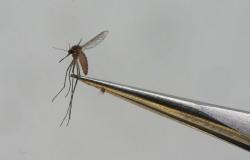
Vaxart, Inc. announced the publication of preclinical data demonstrating the potential of its mucosal vaccine technology platform for therapeutic vaccination against HPV-related cervical dysplasia. These data show that Vaxart’s HPV vaccine constructs can stimulate a potent immune response against HPV16 E6 and E7 proteins, which are known to transform healthy cells into malignant cells. The data, published in the current issue of Vaccines, also show that administering a mucosal vaccine against these proteins to mice with HPV-expressing tumors reduced tumor size and increased survival.
Persistent HPV infection plays a causal role in most cases of cervical dysplasia, which leads to cervical cancer if left untreated. While prophylactic HPV vaccines are highly effective when administered prior to infection, they have not demonstrated a therapeutic effect on established infections. In this study published in Vaccines, the therapeutic potential of this platform was evaluated in mice bearing HPV-expressing tumors.
Animals were treated with vaccine candidates expressing wild-type HPV16 E6 and E7 antigens, modified E6 and E7 that disrupt their malignant transformation potential, and fragments of E6 and E7 that are expected to stimulate an immune response. Key findings from the study include: All vaccines generated a specific T-cell response to HPV16 E6 and E7 in mice. All vaccines resulted in a significant reduction in tumor volume and increased survival compared with control groups.
Coadministration of anti-PD-1 and vaccination further increased animal survival in both small and large tumor models compared to vaccination alone. Vaccination resulted in a significant increase in intratumoral T cells, including T cells that create a cytotoxic tumor environment, compared to an empty control vaccine. Vaccination generated antigen-specific cytotoxic T cells.
These results suggest that rAd5 vaccines delivered to a mucosal surface may have therapeutic potential in the treatment of HPV-derived cervical dysplasia and could be used to stimulate immune responses against other cancer-related proteins. Vaxart continues to evaluate its HPV vaccine candidates.





